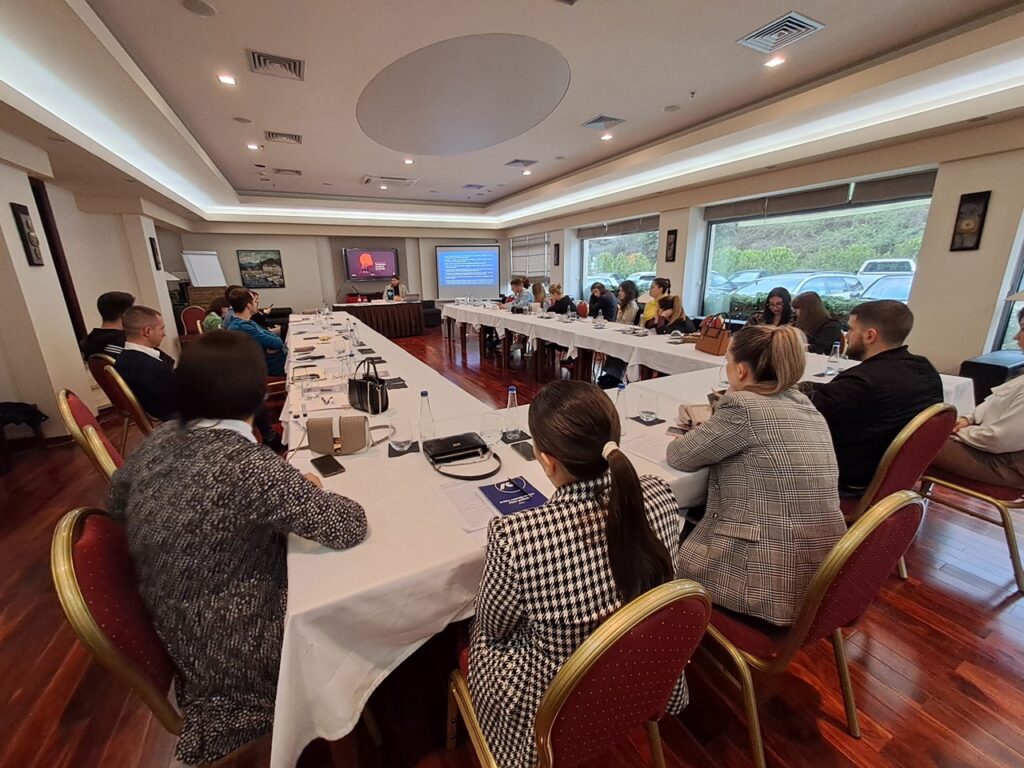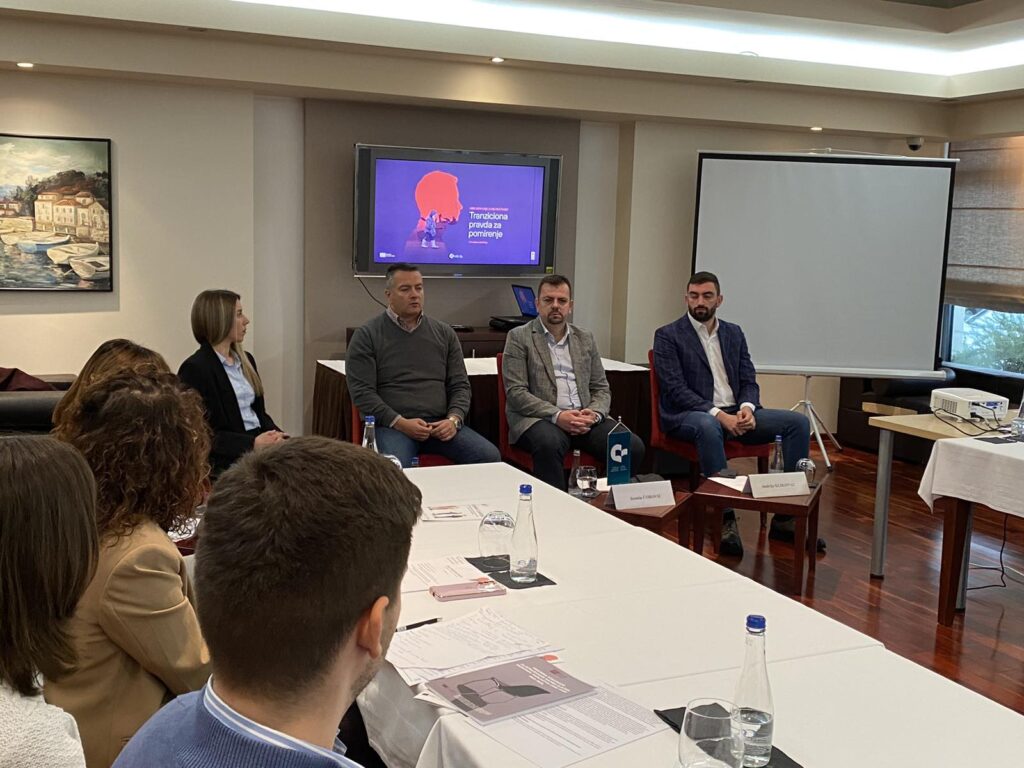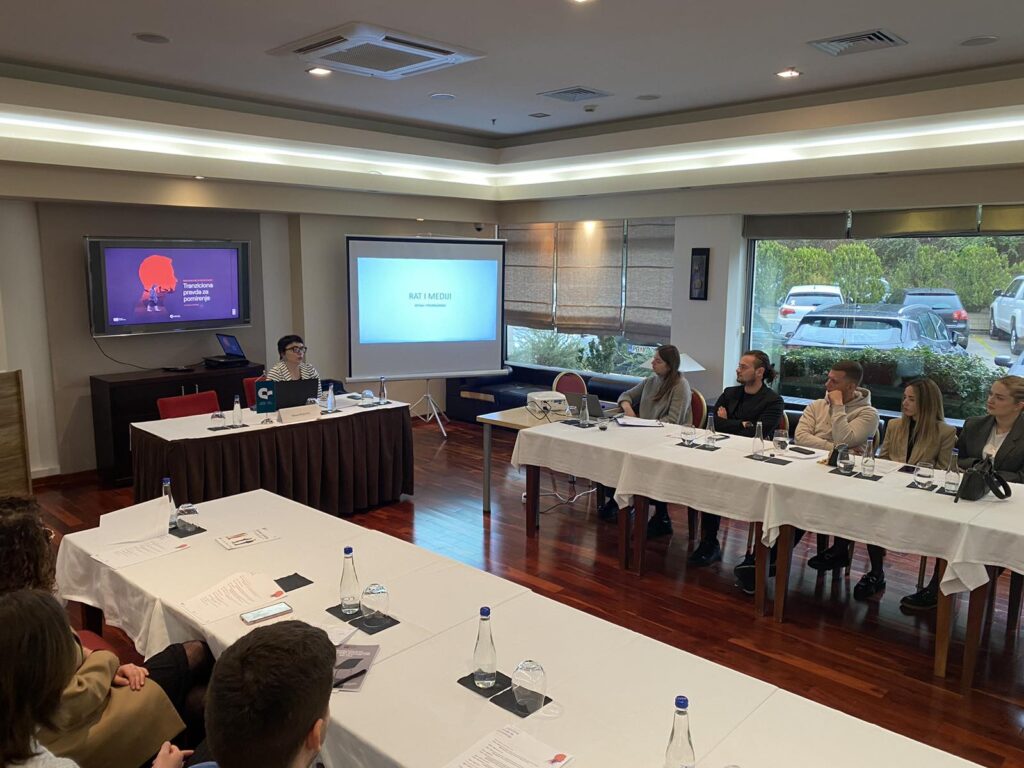Transitional justice and dealing with the past are among the key segments of the process of democratization and Europeanization of Montenegrin society, is one of the conclusions of the first module of the Transitional Justice School, held in Petrovac from 7 to 10 March 2024, organized by the Centre for Civic Education (CCE). The school is part of the project Education for the Future – Transitional Justice for Reconciliation, enabled through the regional project Support of the EU to Trust-Building in the Western Balkans, funded by the European Union (EU) and implemented by the United Nations Development Program (UNDP).
Through this programme, students, young researchers and those who are just building their professional careers, had the opportunity to learn about the concept of transitional justice, dealing with the past in domestic and regional context, war crimes from the 90s, how these issues are addressed through international humanitarian law, the role of the media in the transitional justice process in Montenegro and the region, regional and international cooperation in the prosecution of war crimes, as well as about the culture of memory and anti-war movements in Montenegro. In a dynamic and meaningful way, through lectures, workshops and film screenings with accompanying discussions, they were led by human rights activists, experts from the academia and practice, historians and journalists. Additionally, part of the programme was a panel discussion Political will as an impulse or an obstacle to confronting the past, featuring Member of the Parliament of Montenegro and the President of the Croatian Civic Initiative, Adrijan Vuksanović, the Vice-President of the Bosniak Party, Jasmin Ćorović, and the Vice-President of the Youth of Montenegro of DPS, Andrija Klikovac. Also, Lidija Vukčević, state prosecutor in the Supreme State Prosecutor’s Office, gave a presentation.
“The Transitional Justice School was a very useful experience that gave me a deeper understanding of the process of transitional justice and its significance in post-conflict societies. I believe it is important to organize seminars like this, considering that in schools we do not have the opportunity to hear anything about this issue,” said Sara Arifović, one of the participants.
A similar impression is shared by Andrea Eraković. “This was an excellent experience, and above all, inspiring. I was given the opportunity to investigate more deeply the facts about the war crimes of the 90s. The process of transitional justice and the culture of memory in Montenegrin society represent a complex topic that we don’t talk about enough, and we should in order for crimes to never be repeated,” she stated.
“The Transitional Justice School is an excellent opportunity for young people to become familiar with cases of war crimes in Montenegro. Listening to respected lecturers, I learned many important things, but they are hardly discussed in our society. I am glad that this will not be the last school of this kind organized by CCE, and that more young people will have the opportunity to improve their knowledge related to the wars of the 90s,” says Balša Knežević, in reflection on this programme.
“My impression is that the participants were selected very carefully and that everyone was very interested. Maybe because this was one of the rare opportunities for them to hear about these things, but they were really perceptive, attentive and ready to listen and give their opinion, which is also significant today. They should be encouraged to think and discuss on their own, rather then us constantly serving them something,” said Jelena Krstić, deputy director of the Humanitarian Law Fund (FHP) from Belgrade, who gave a presentation on dealing with the past as a regional challenge and response mechanisms.
Filip Kuzman, a historian, who spoke about the anti-war movements in the territory of Montenegro during the 90s, also assesses that the School is useful both for dealing with the past and for the future development of society. “This is a good opportunity for young people to learn about some bright points of domestic history in a dark time, but also to be promoters of that knowledge among their peers,” he emphasizes.
“The Transitional Justice School is essential for the development of critical awareness of young people about the events of the wars of the 90s, compensating for the lack of official teaching about wars in the territory of the former SFRY, which also has led to the neutrality and lack of interest of young people in these topics. Such programmes restore that interest and provide objective and inclusive education to young people about past events in the hope that they will not be repeated,” says Bojana Malović, coordinator at Human Rights Action (HRA) and one of the lecturers.
“In a country that has not faced its war past, where control over education has been held for decades by those who wrote the wartime pages of Montenegro, and about whom today there is mostly silence, while in parallel there is no shortage of historical revisionism and ideology in the public discourse of the 90s, the Transitional Justice School organized by the CCE is of great importance. It is a pleasure to see young people willing to learn about the process of transitional justice, dealing with the past and other extremely important topics for this society,” assesses Milena Perović, journalist and director of the weekly Monitor, who, during the School, reviewed the role of the media in reporting on war crimes.
The second module of the Transitional Justice School will be organized during April, when the participants will have study visits to places of crime and memory during the 90s in Montenegro.
Maja Marinović, Programme Associate



